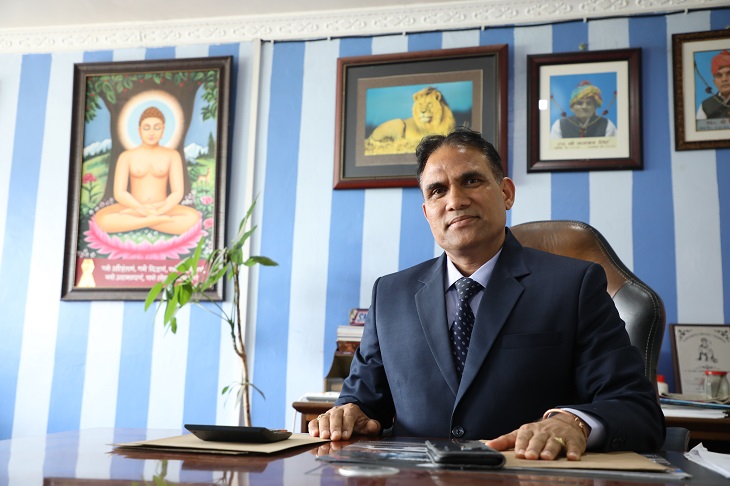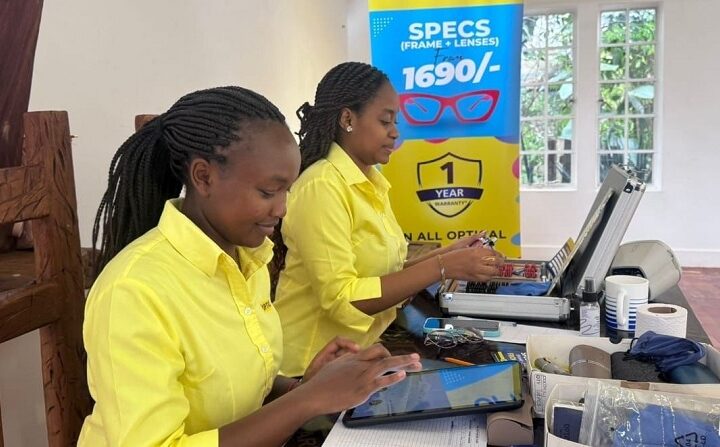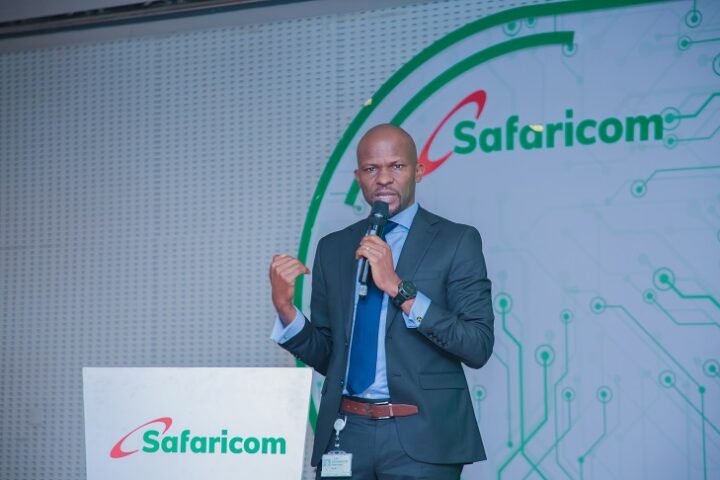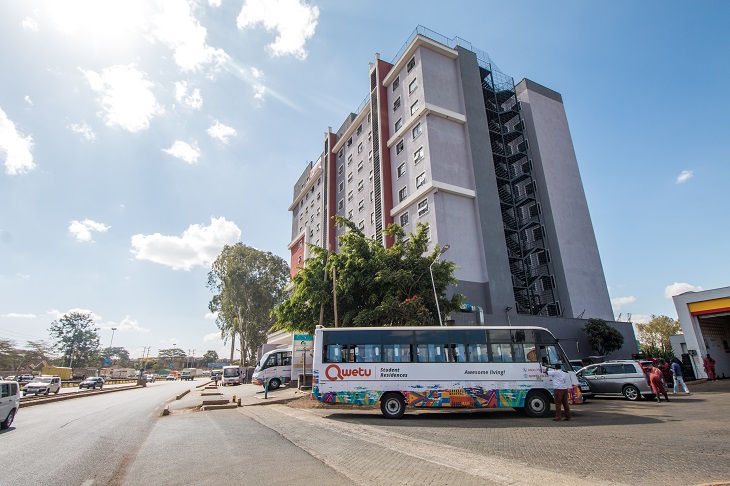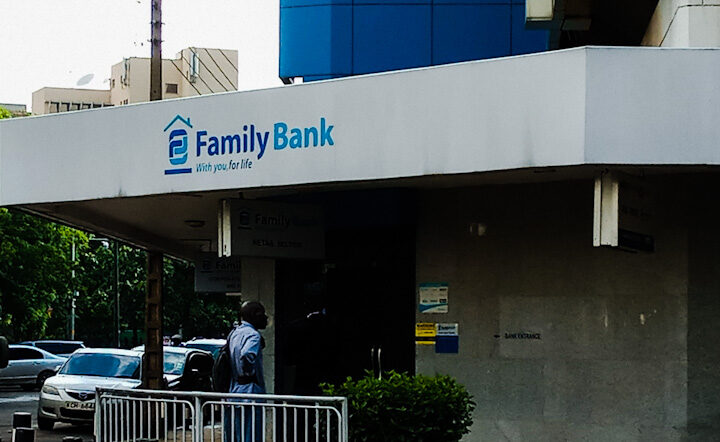Sonvir Singh found himself in need of twenty shillings, the bus fare required for his matatu journey from Nairobi’s Central Business District to his home in South C. However, he lacked twenty shillings. This episode marked one of the lowest points in his life, yet it was his Road to Damascus moment.
Close to two decades later, it fueled his rise from adversity and culminated in setting up a packaging company aiming to cross the half-a-billion annual revenue threshold.
From lacking KES 20-shilling matatu fare to setting up and running Shri Krishana Overseas Ltd, a packaging solutions company, Sonvir’s story is a woven tale of resilience, discipline, determination, and vision all closely knitted over two decades.
Sonvir, a native of India’s Rajasthan State, came to Kenya, in 2006 as a general manager at Nairobi-based Label Convertors having been poached because of his experience as an engineer specializing in packaging and printing and with twenty years of experience.
This experience proved critical because at Label Convertors he was able to introduce UV printing in Kenya, saving companies the trouble of importing materials.
“Previously companies would have to source labels from South Africa or Europe but given my experience I was able to introduce this technology to the Kenyan market which was picked up by many FMCG companies including Reckitt Benckiser, Unilever, Haco Industries, Bidco Africa,” says Sonvir.
But after two years he parted ways with Label Convertors which would mark what he calls the toughest part of his journey, an acid test whose outcome would change his life’s trajectory.
No job, a newly wedded, and a three-month-old girl collided to make life hard. Even food was a struggle and the young family relied on meals from their temple.
He credits his wife, Nirmal Chaudhary, whom he says was his support pillar throughout the toughest period of his journey, encouraging him to soldier on faith that it was not a matter of if but when the family’s fortunes would change.
Nirmal is the company’s Finance Director and co-founder with close to two decades of experience learned on the job. She has an MSc in computer science.
Additionally, she is a director (with Sonvir) at Magman SKL Group Limited, SKL Print Pack (LLP) Limited, and SKL News (India), showcasing her diverse interests and leadership skills.
Nirmal is also involved in various charitable organizations such as the SKL International Foundation, Shri Shri Sarv Siddh Puratan Kali Bari Trust, and the Hindu Council of Kenya.
Luck would strike when he got a job at Elgon Kenya, an agricultural company with interests in fertilizers, flowers, and part of the Kantaria family business empire.
Due to the solid reputation he had earned in the packaging and printing sector, he was approached by Elgon Kenya patriarch Bimal Kantaria to manage the company’s label manufacturing department.
Again, his entrepreneurial spirit came into play in 2010 when he was transferred to the corrugated box manufacturing department.
Boxes are a vital part of packaging horticultural and floricultural products, especially those destined for the export market. The department was juggling with the twin challenges of quality and quantity production and Sonvir says the Elgon Kenya founder challenged him to shape up the department.
Sonvir Singh’s technological expertise and experience transformed the department. In just two years, he was able to reduce waste from 23% to almost half, streamline operations, and double monthly packaging production to 500 tonnes from 250 tonnes.
“It was not an easy job because I had to maintain quality with the same machinery and labor force. Still, I was able to introduce new boxes to the Kenyan market that made it possible for goods to stay fresh as they move from the tropical Kenyan weather to Europe where temperatures can go to minus 4 degrees.”
Even as he gained success at his present job, there was an inner voice that nudged him to start a sustainable business that would ensure he would never again go through what he went through in his jobless phase a few years before. He also reckoned that at 35 he had to plant the seeds to reap rewards to take care of himself and his family in his sunset years.
In 2010 Sonvir and Nirmal began Shri Krishana Overseas Ltd, a business targeting Kenya’s Indian community by importing rice and spices.
Moonlighting
By this time the Singh household had grown to include a baby. A typical day would be spent juggling between his 9-5 job and moonlighting at the import business and restaurant. The couple would additionally work on weekends and holidays including Diwali, a key holiday for Hindus.
As an offshoot of the import business, the couple then opened an Indian restaurant, and a dry goods store, which was managed by Nirmal.
Success, it seemed, had its price. Though profitable, the Singh’s businesses battled fierce and unfair competition. The weight of managing all this compounded the stress, leaving him longing for an alternative.
“One invoice for a packaging client was more than what the restaurant would make in a month.”
Packaging begins
By sheer coincidence or providence, Elgon Kenya made a strategic move to focus on the agricultural side of the business and get out of the packaging business. Elgon Kenya sold its business to Dodhia Packaging.
His job was still intact despite the change of ownership in the business but it was at this time he took the step to set out on his own.
“I had a good relationship with Bimal (Kantaria) who said that the doors are still open in case my packaging venture did not fly.”
The couple sold their business in 2013 and with KES 250,000 in their bank account, they started their packaging company driven by promising returns.
Even though this amount was not enough to cover the huge capital expenditure needed in the packaging and printing business, he stuck to his philosophy of starting with what you have.
The startup was guided by his four pillars; never give up, be honest, commit, and hard work. He credits his parents, small-scale farmers who could not write and read, for impacting on him these values.
“If you are capable you should help others.”
Experience gained in both employment and the couple’s importation business and restaurant was vital as they guided them on what risks to take and to avoid.
With ramrod determination, confidence from years of experience, and KES 250,000 in the bank the couple rented a godown in the Industrial Area of Nairobi. The rent alone was KES 120,000 per month but the landlord gave him a three-month grace period because of the good reputation he had earned over the years.
This reputation was additionally the seed capital for his printing business in the form of referral business he got from his past customers.
The company started with one employee, Mr. Mwema Mutisya who is still with the company to date.
“He is now a mzee (65) and he is still with us helping us where he can. I have been fortunate to have him on our team because he is loyal and honest, the type of person you can give KES 10 million to handle and you are confident that not a cent will go missing.”
The first days were a manual affair.
“We did not have a machine so we would manually screen print boxes for our customers. But what do you do, you have to find a solution.”
Having solved this initial challenge, another one arose. The boxes had to be delivered to customers. Outsourcing transportation had its challenges because of the costs involved and the risks transporters could easily replicate the Singh’s business were alive.
A lorry was needed but the cash the business was generating was being plowed back to invest in more raw materials to increase turnover. In short, there was no excess cash to enable Shri Krishana Overseas to invest in a lorry or any vehicle.
Lady Luck seemed to be smiling at Sonvir. A close friend acted as a guarantor to secure a new lorry from Tata Motors.
The momentum continued. Sonvir discovered a discarded printing machine. With his technical expertise, he transformed this potential scrap into a valuable asset, installing and calibrating it to become the heart of his printing operation.
“This is my best machine to date.”
To reduce costs, the company bought waste paper from other factories, and recycled and reused this paper to make packaging for flower exporters.
Expansion continued in mid-2014 when a Mombasa-based company put up an advert to sell a manufacturing plant which he immediately jumped on. The plan was to buy two machines but the owner wanted to sell everything at a go. To complicate matters Sonvir did not have enough funds. Not one to give up he offered the seller a deal he could not refuse.
“I told him I would buy all his eight-year-old machines for the same price as new ones on condition that I could pay in installments.”
Initially skeptical, the buyer made a surprising call back the next day, greenlighting the deal. Sonvir attributes this shift to his strong reputation within the industry.
“I knew I could pay in six months because I now had the technology and the market.”
The newly installed plant enabled Shri Krishana Oversees to increase output and by the end of 2014 the company hit revenues of KES 84 million from the KES 2 million it made in the first year of operation, enough cash that made it possible to fully pay the plant seller.
Sales boomed over the next few years and by 2023 the company racked in KES 350 Million. From two employees the company now has over 100.
Giving back
The couple has donated to various causes in health, education, women empowerment, and the environment.
Sonvir says that the focus on education is due to its long-lasting impact.
“If you do not invest in education for children you limit their opportunities when they mature and to survive, they may end up getting involved in crime and other vices. But the right education gives children an opportunity to earn gainful employment as doctors, lawyers, or businessmen.”
Apart from being SKL, Sonvir has other business and social interests.
He is the founder and current chairman of the Rajasthan Association of Kenya, Hindu Council of Kenya (national vice chairman), SKL International Foundation (chairman), and Federation of Trade and Industry and India (vice president).
Related Content: Lessons From Successful Small Businesses In Africa


